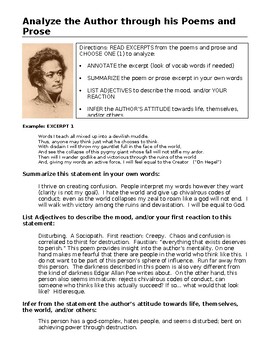FREE | Communism | Who was Karl Marx? Creepy Marxist Poems | Poetry Analysis
- Word Document File
Description
Attached is an editable word.doc collection of some Karl Marx poetry and creative prose, turned into a free analysis activity to provide students some insight into who is Karl Marx.
For ELA: Can be used for an activity related to Animal Farm by George Orwell when providing a background about Karl Marx leading up to a compare / contrast activity for Old Major's speech to Lenin's speech (Chpt 1). This activity can also be used in a history class when learning about Marxism.
Marx's poetry and prose is dark and disturbing, so I would preface with a content warning for students and/or make the activity optional.
These poems and writings are all written by Karl Marx and are in the public domain.
Reviewing these writings begs the question: Should Philosophers' Personal and Moral Lives Matter? Marx had more impact on events and men’s minds than any other intellectual in modern times. His ideological progeny includes: Josef Stalin, Mao Tse Tung, Pot Pot, and Fidel Castro. The total number of lives lost under Marxist ideologues in the last century: between 85 million and 200 million.





